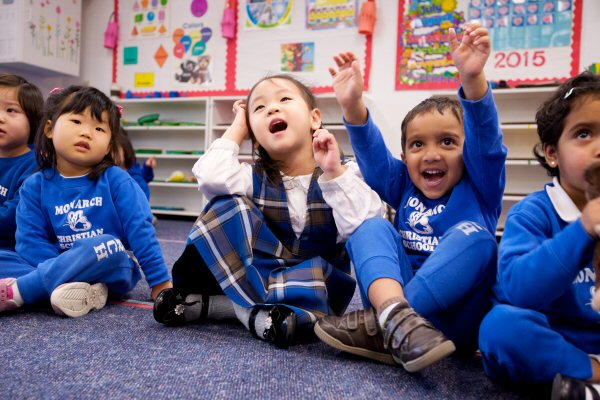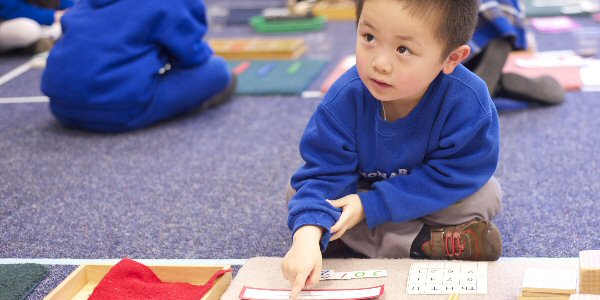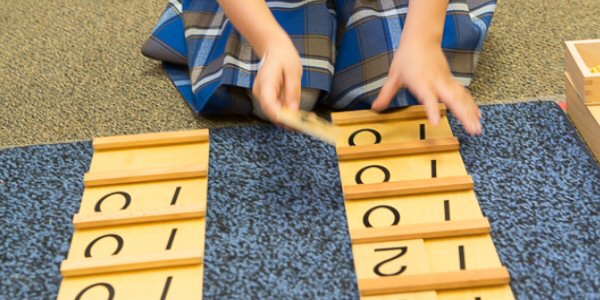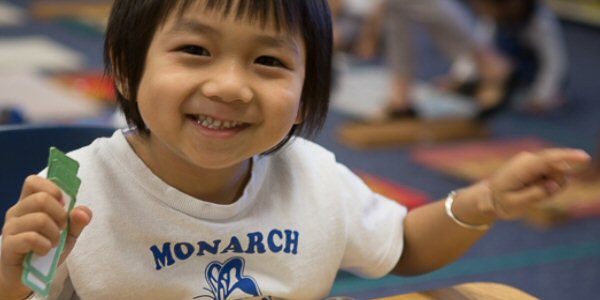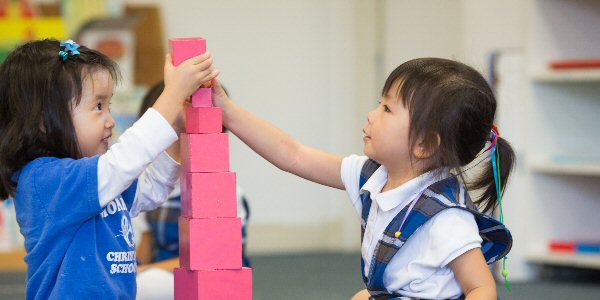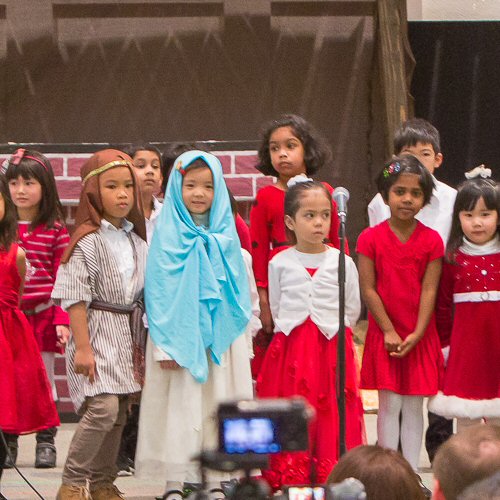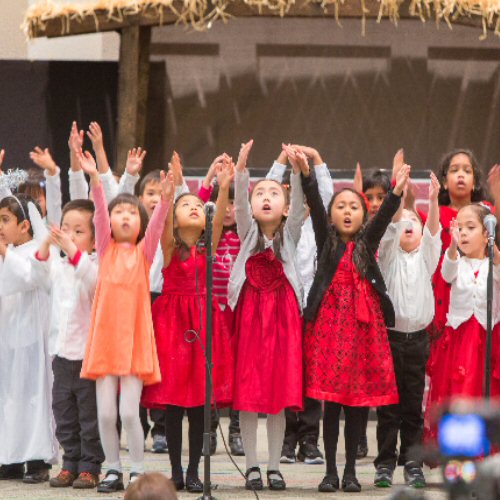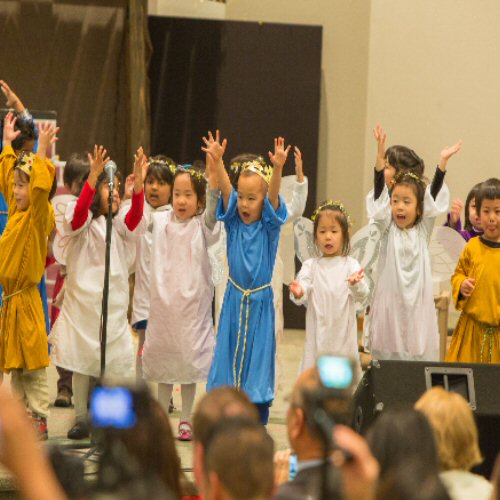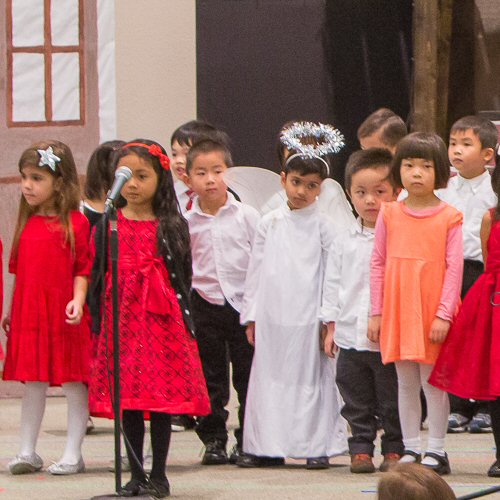Preschool – (2 – 4 year olds)
Why should you send your child to a Montessori school?
Montessori is education…not a nursery school. The best time to start your child’s education is during the early years…2 1/2 to 4 1/2 years is when most of a child’s intelligence and social characteristics are formed. 50% of the child’s mental development occurs before 4 years of age. In a Montessori School, your child will learn to think in logical patterns and to deal with reality. Children with a Montessori background become better prepared to cope with the complex challenges of tomorrow’s world.
Language Arts
Our language program, from Kindergarten, teaches language skills using Montessori materials that engage the student and spark their desire to read and express themselves in written form. Supplemental textbooks and workbooks are used to enhance the Montessori components of the curriculum. Instruction in the primary grades emphasizes phonics, grammar, vocabulary and comprehension. Monarch has a reputation for having students that read well above their grade level. Our students read with enjoyment and with the utmost confidence. Students enjoy the freedom of expression in the Creative Writing component which is a regular and essential part of our Language Arts curriculum. Daily oral reading in small groups with the teacher build good confidence and provide training in reading accuracy and meaningful expression. Writing instruction and assignments are integrated into the reading, history, and science curriculum. The library and computer instruction support classroom lessons.
Mathematics
Utilizing hands-on Montessori materials, the mathematics curriculum builds in our students a solid foundation of core skills and enables them to become logical problem solvers. Our goal is to develop sharp, mathematical thinkers who can compute, problem solve and think flexibly. Skills build from level to level, operations and computation, measurement and geometry, patterns and relationships, reasoning and data analysis. Concepts are taught from concrete to abstract levels with Montessori manipulatives, and supplemented with texts, workbooks and technology.
Through teacher-directed class instruction and group activities, students learn to communicate using the language of math. They are able to show logical steps in their written work, compare strategies for finding solutions, and develop an understanding of each concept. Previously studied material is systematically reviewed and students are tested to check for retention, speed and accuracy.
Sensorial
In the Sensorial area of the classroom, we have jobs that focus on the physical senses. With the visual sense the children will work on sizing and matching different materials. Once again this helps to develop the eye muscles for reading and discriminating between letters and words.
The children will use their sense of touch to grade various materials from rough to smooth, light to heavy and hot to cold. Most of the touch activities are done blind folded so that their sense of touch is isolated and they don’t use their sense of sight. This helps to develop their fingers for holding a pencil and using lightness of touch for writing.
The sound jobs help to develop their sense of hearing for listening and following directions.
Practical Life
Learning the basic skills of caring for one self is the core of the practical life curriculum. Zipping, buttoning, buckling, bow tying, hand washing and polishing are some of the skills the child will learn.
Many practical life activities challenge the children to control their small hand muscles to complete delicate tasks such as spooning peas from one container to another.
Caring for the environment is the responsibility of every child. Learning to sweep and use a dust pan, wash a table and water plants are all common practical life activities. Nurturing independence is at the core of the Practical Life curriculum. If they need help, they are given only the assistance they need to complete the task on their own.
Science
Our Science program is designed to promote scientific knowledge of the earth, life, and physical sciences, with a special emphasis on developing critical thinking skills.
In order to stimulate their minds and curiosity, as well as to prove the basic concepts of various disciplines in science, the students are given the opportunity to conduct experiments with as many hands-on materials as possible. Students experience fascinating creatures, specimens, and creative lessons that capture the imagination and instill a love of nature. The indoor and outdoor classrooms of our campus against the foothills, allow for authentic experiences that emphasize close observation, experimentation, and application in a natural, aesthetic setting.
As students design and conduct experiments, they practice the processes of observation, data collection, questioning, hypothesizing, and forming conclusions. The program fosters scientific literacy and helps our students become problem solvers and critical thinkers. Science Fair is a highlight of our program for both students and parents. Field trips are a key part of the Science program and they are strategically planned and scheduled with the Science program in mind.
Social Studies
The social studies curriculum includes geography and history. In geography students learn about land and water forms, globes, maps, flags and multicultural awareness. In history they will learn time, calendar, seasons and personal family history.
The children gain an awareness of the world around them by exploring other countries, their customs, food, music, climate, language, and animals. This helps to raise their consciousness about other people, to gain an understanding and tolerance and, therefore, compassion for all the people in the world. The children use the large wooden puzzles to learn the names of the continents and gradually the names of countries.
